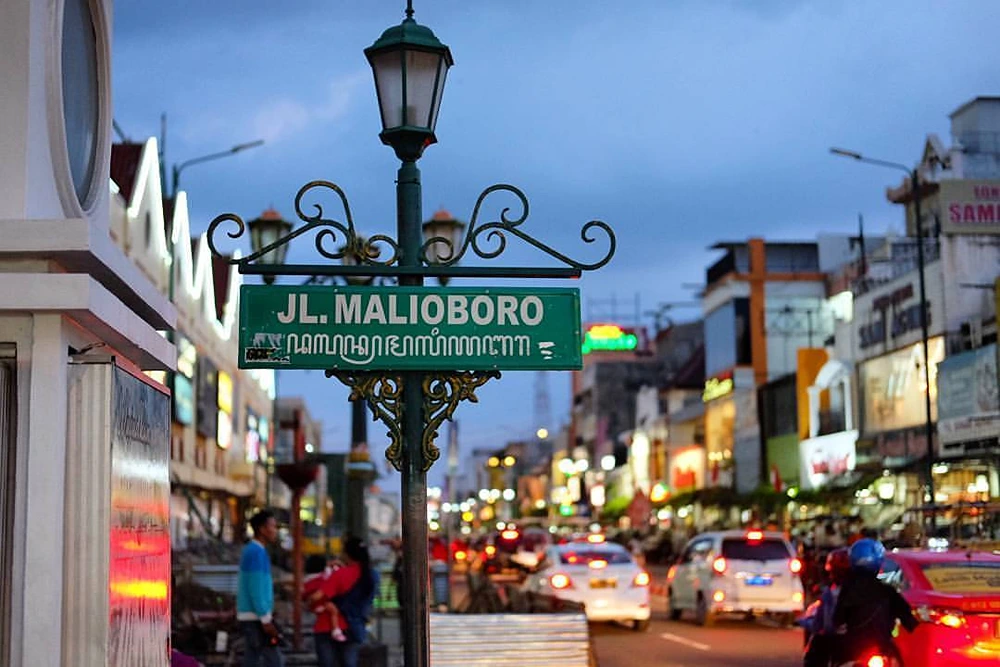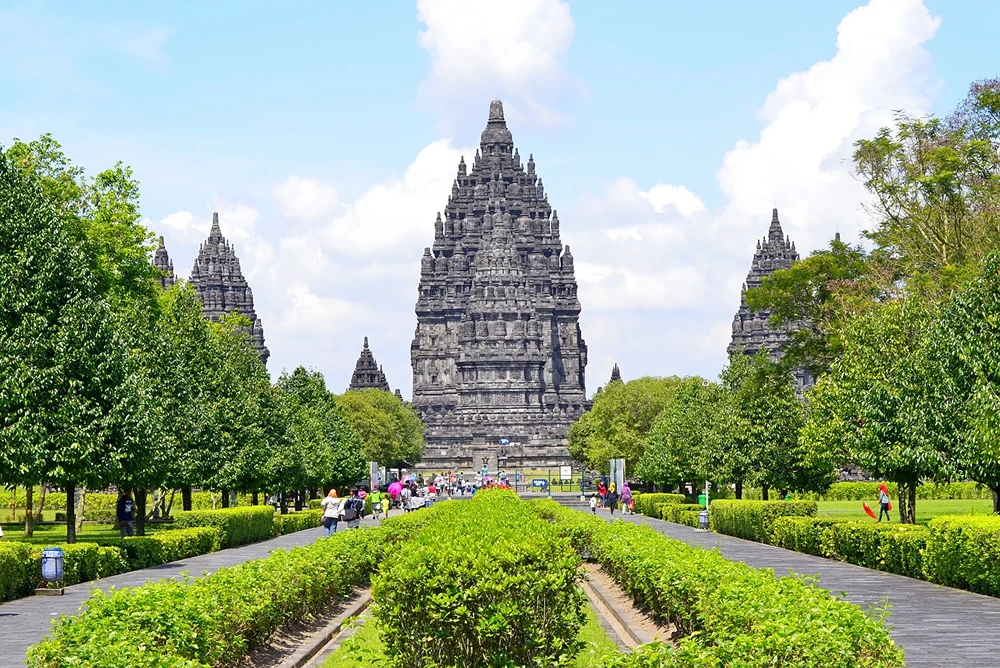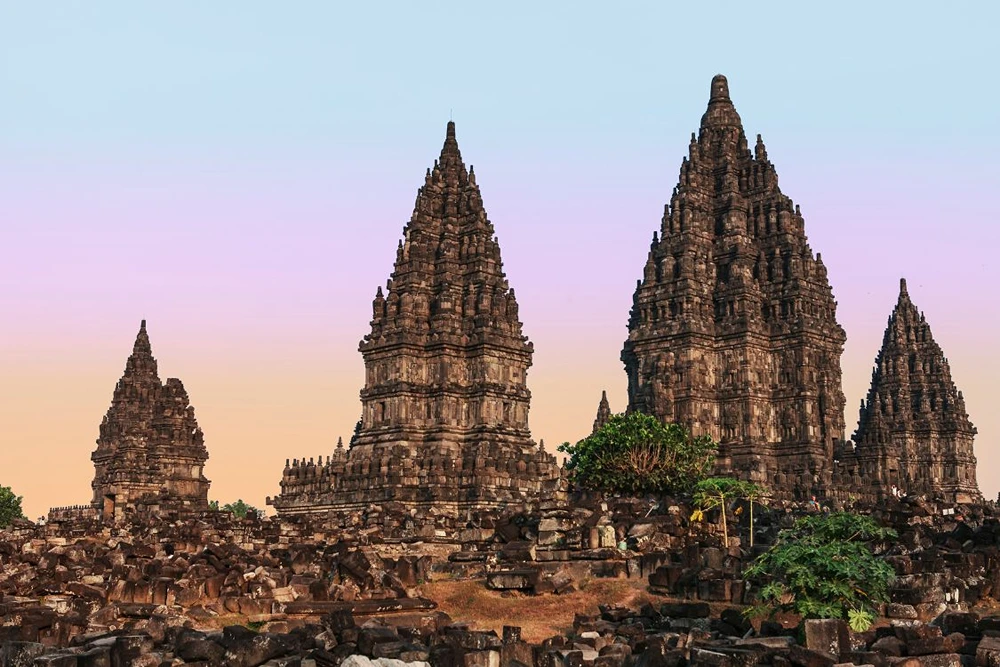Yogyakarta offers visitors an unparalleled experience:
- Rich Cultural Heritage: Home to ancient temples and royal palaces
- Vibrant Arts Scene: Center for traditional Javanese arts and contemporary creativity
- Natural Beauty: Surrounded by volcanoes, beaches, and lush landscapes
- Culinary Delights: A paradise for food lovers with unique local specialties
- Warm Hospitality: Known for its friendly and welcoming locals
Whether you’re a history enthusiast, art lover, adventure seeker, or culinary explorer, Yogyakarta has something special to offer.
Travel Resources
To make your Yogyakarta trip unforgettable, consider these essential resources:
- Flights: Use our flight search tool to find affordable options to Yogyakarta International Airport (YIA) or Adisutjipto International Airport (JOG).
- Travel Insurance: Protect your trip with comprehensive travel insurance tailored to your needs and activities in Yogyakarta.
- Car Rental: While public transportation is available, renting a car can be convenient for exploring temples and surrounding areas at your own pace.
- Guided Tours: Enhance your experience with expert-led tours of Yogyakarta’s top attractions, including Borobudur and Prambanan temples.
- Essential Packing List: Prepare for your trip with our comprehensive packing guide, including lightweight clothing, sun protection, and cultural considerations for temple visits.

Some History First
Yogyakarta’s history is as rich and layered as its culture:
- Ancient Roots: Part of the Mataram Kingdom in the 8th and 9th centuries
- Islamic Sultanate: Established in 1755 by Sultan Hamengkubuwono I
- Colonial Era: Resisted Dutch control, maintaining relative autonomy
- Independence: Served as Indonesia’s capital during the revolution (1945-1949)
- Special Status: Granted special administrative status in independent Indonesia
Key historical sites to visit:
- Kraton Yogyakarta (Sultan’s Palace)
- Taman Sari Water Castle
- Kotagede (old capital of Mataram Kingdom)
Yogyakarta Today
Today, Yogyakarta stands as a unique blend of tradition and modernity:
- Population: Over 400,000 in the city proper, 4 million in the greater area
- Economy: Thriving tourism industry and center for education
- Culture: Stronghold of Javanese traditions, arts, and crafts
- Education: Home to numerous universities, including Gadjah Mada University
- Innovation: Growing tech startup scene and creative industries
Is Yogyakarta Safe?
Yogyakarta is generally very safe for tourists, but it’s always wise to exercise caution:
- Petty Crime: Low incidence, but be aware in crowded tourist areas
- Traffic: Exercise caution when crossing streets or using motorbike taxis
- Natural Disasters: Be aware of potential volcanic activity from nearby Mount Merapi
- Health: Drink bottled water and be cautious with street food
Tips for staying safe:
- Use reputable transportation services
- Respect local customs and dress modestly, especially when visiting temples
- Stay informed about any volcanic activity warnings
Where is Yogyakarta?
Yogyakarta is strategically located in the southern part of Central Java, Indonesia:
- Coordinates: 7°47′S 110°22′E
- Area: Approximately 32.5 square kilometers (12.5 sq mi)
- Bordering regions: Central Java Province surrounds Yogyakarta Special Region
- Nearby landmarks: Mount Merapi to the north, Indian Ocean to the south
Fun fact: Yogyakarta is one of only two special regions in Indonesia (the other being Jakarta) that are still governed by a pre-colonial monarchy.
Latest Articles
From The Area
What is the Best Time to Visit Yogyakarta?
The best time to visit Yogyakarta is during the dry season from April to October:
- Weather: Less rainfall and lower humidity
- Temperatures: Average highs of 30°C (86°F) and lows of 22°C (72°F)
- Events: Many cultural festivals occur during this period
Consider these factors:
- Wet season (November to March): Higher rainfall, but lush green landscapes
- Peak tourist season: July and August; expect higher prices and crowds
- Ramadan: Dates vary yearly; some businesses may have limited hours
How to Get to Yogyakarta & Around
Getting to and around Yogyakarta offers various options:
Arriving in Yogyakarta:
- Air: Yogyakarta International Airport (YIA) – newer airport for international flights
- Rail: Connections to major Javanese cities via Tugu and Lempuyangan stations
- Bus: Inter-city buses arrive at Giwangan Bus Terminal
Getting around the city:
- TransJogja: Reliable bus system covering major areas
- Becak: Traditional cycle rickshaws for short distances
- Taxis: Blue Bird is a reputable company
- Ride-hailing apps: Grab and Gojek are popular and convenient
- Rent a motorbike or bicycle: Popular for exploring the city and surroundings
Tip: Consider hiring a driver for day trips to temples and surrounding areas.
Things to Do in Yogyakarta
Yogyakarta offers a wealth of attractions and activities:
1. UNESCO World Heritage Sites:
- Borobudur Temple: World’s largest Buddhist temple
- Prambanan Temple: Magnificent Hindu temple complex
2. Cultural experiences:
- Visit the Kraton (Sultan’s Palace)
- Explore Taman Sari Water Castle
- Watch a Ramayana Ballet performance at Prambanan
3. Art and crafts:
- Learn batik making in Kota Gede
- Visit silver workshops in Kotagede
- Explore contemporary art at Jogja National Museum
4. Nature and adventure:
- Hike Mount Merapi
- Visit Jomblang Cave
- Explore Timang Beach and its unique gondola
5. Culinary adventures:
- Try gudeg at Wijilan Street
- Explore Malioboro Street for street food
- Dine at traditional Javanese restaurants
Pro tip: Join a guided tour to Borobudur for sunrise – it’s a magical experience!
Where To Stay In Yogyakarta
Yogyakarta offers accommodations for every budget and preference:
- Luxury: Five-star hotels near Malioboro Street
- Mid-range: Comfortable hotels in Prawirotaman area
- Budget: Hostels and guesthouses in Sosrowijayan
- Unique stays: Traditional Javanese houses in villages around the city
Popular areas to stay:
- Malioboro: Central location, close to shopping and dining
- Prawirotaman: Known as the “tourist village,” with many hotels and restaurants
- Kota Gede: Quieter area, known for silver craftsmanship
- Near universities: Budget-friendly options for longer stays

What To Eat In Yogyakarta
Yogyakarta’s culinary scene is a delight for food lovers:
Must-try local dishes:
- Gudeg: Young jackfruit stew, Yogyakarta’s signature dish
- Bakpia: Sweet pastry filled with mung bean paste
- Sate Klathak: Unique skewered meat served on iron spikes
- Mie Lethek: Hand-made noodles with a chewy texture
- Kopi Joss: Charcoal-infused coffee
Where to eat:
- Traditional markets: Beringharjo Market for local snacks
- Street food: Malioboro Street for a variety of options
- Local restaurants: Gudeg Yu Djum, Sate Klathak Pak Pong
- Modern cafes: Along Prawirotaman Street
Tip: Don’t miss the chance to dine at a lesehan – sitting on mats on the floor for a truly local experience.
Entry & Exit Requirements
Visiting Yogyakarta requires some preparation:
- Visa: Many nationalities eligible for visa-free entry or visa-on-arrival
- Passport: Must be valid for at least 6 months beyond your stay
- Proof of onward travel: May be required upon entry
- Customs: Declare items exceeding duty-free allowance
Important: Always check the latest requirements with the Indonesian Embassy or consulate in your country before traveling.
What To Pack For Your Trip
Prepare for Yogyakarta’s tropical climate and cultural norms:
Essential items:
- Lightweight, breathable clothing
- Modest attire for visiting temples (cover shoulders and knees)
- Comfortable walking shoes
- Rain jacket or umbrella
- Sunscreen and insect repellent
- Universal power adapter
- Reusable water bottle
Tips:
- Bring a sarong – useful for temple visits and beach trips
- Pack some long-sleeved shirts and pants for protection from mosquitoes
- Consider bringing a small gift if you’re invited to a local’s home
Remember, Yogyakarta has markets and shops where you can buy most items you might forget, including beautiful batik clothing!
FAQs
Yogyakarta is generally safe, but it’s advisable to exercise caution, especially in crowded areas.
Don’t miss traditional Javanese dance performances such as Ramayana Ballet and Wayang Kulit (shadow puppetry).



